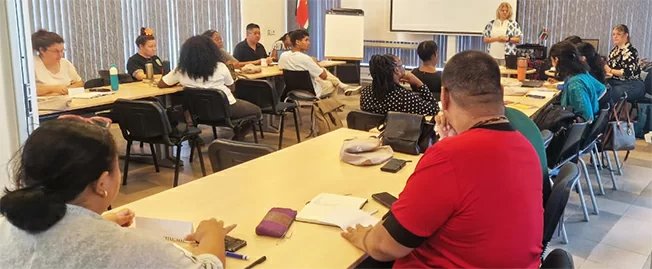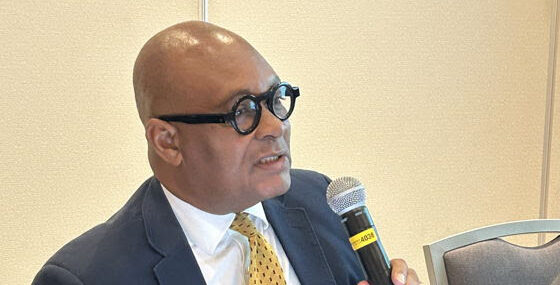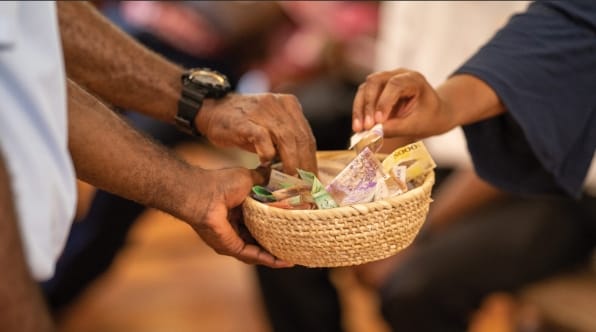Jamaica has emerged as the global leader in altruism, securing the top spot for its citizens’ willingness to assist strangers, as revealed in the World Happiness Gallup Report 2025. The Caribbean nation is closely trailed by Liberia and Sierra Leone, both of which also exhibit remarkable levels of generosity toward unfamiliar individuals. However, despite their commendable acts of kindness, these countries rank significantly lower in terms of charitable donations, with Jamaica, Liberia, and Sierra Leone positioned more than 80 places behind in global charity contribution rankings. The report identifies a similar trend in Nigeria and Kenya, which also feature in the top 10 for helping strangers but struggle with financial contributions to organizations. These nations, along with Jamaica, grapple with issues of institutional trust, particularly in their interactions with law enforcement, which often results in a diminished reliance on formal systems. This phenomenon underscores a broader societal pattern: in regions where institutional frameworks are perceived as unreliable or inaccessible, individuals tend to seek support from one another rather than from formal entities. In Jamaica and similar contexts, generosity transcends mere moral obligation, evolving into a tangible manifestation of trust and solidarity among neighbors and strangers alike. This preference for personal, human-centered assistance over formal charitable mechanisms highlights the unique social dynamics at play in these societies.
分类: society
-

TTSPCA welcomes animal shelter tax concession
In a significant move to support animal welfare, the Trinidad and Tobago government has announced tax concessions for corporate and individual contributions to registered animal shelters. Finance Minister Davendranath Tancoo unveiled this initiative during the national budget presentation on October 13 at the Red House. The proposal includes amendments to the Corporation Tax Act and the Income Tax Act, allowing companies and individuals to claim deductions for their donations to approved shelters. Companies can deduct up to 15% of their chargeable profits or $100,000 annually, while individuals can claim up to 20% of their total income or $20,000 per year. These changes, set to take effect on January 1, 2026, aim to bolster the efforts of shelters in controlling stray populations, promoting spaying and neutering, and enhancing public health and environmental sanitation. Sita Kuruvilla, chairman of the TT Society for the Prevention of Cruelty to Animals (TTSPCA), expressed optimism about the new policy, highlighting its potential to attract more support and reduce the financial burden on shelters. The TTSPCA, which faced imminent closure in September 2024 due to funding shortages, hopes this initiative will encourage more donations and ensure the sustainability of their operations.
-

Firearm found on church premises in St Elizabeth
In a surprising turn of events, a Smith and Wesson revolver was uncovered at a church in the Carisbrook district of Maggotty, St Elizabeth, Jamaica, on Sunday evening. According to Superintendent Coleridge Minto, head of the St Elizabeth Police Division, the discovery was made during a targeted operation conducted by law enforcement officers based on intelligence reports. The operation commenced at approximately 7:00 pm, with officers meticulously searching the church premises. The firearm was found concealed in an orange cloth near the rear perimeter fence of the property. Despite the discovery, no arrests were made in connection with the incident. Authorities have not yet disclosed further details regarding the origin of the firearm or its potential connection to the church. The incident has raised concerns about security in the area, prompting calls for increased vigilance.
-

Body of woman found with knife embedded in the neck in Manchester
In a shocking discovery, the lifeless body of a 54-year-old woman was found in the rural community of Shirehampton, located in northwest Manchester, on Tuesday morning. The victim was discovered with a severe head wound and a knife lodged in her neck. Authorities have yet to release the identity of the deceased. Initial reports suggest that the woman was last seen leaving a local shop in the area, situated between Huntley and Maidstone, shortly after 9:00 PM on Monday. Residents stumbled upon her body the following morning along a roadside in the vicinity. The police have launched an investigation into the incident, but no further details have been disclosed at this time.
-

Teen mom and baby among four missing people found in Manchester
In a recent development, 14-year-old Kenalya Burton, affectionately known as “Kay Kay,” and her 10-month-old daughter, Keira Burton, who had been reported missing earlier this week, have been successfully located. Superintendent Coleridge Minto, head of the St Elizabeth Police Division, confirmed that the pair were found in Mandeville on Monday. The discovery was made in the company of two other 14-year-old students from Manchester, who had also been reported missing. Following their recovery, Burton and her daughter were handed over to the Santa Cruz police and subsequently released into the care of her guardians. Burton is scheduled to appear in court in St Elizabeth on Tuesday, October 14, 2025. The Child Protection & Family Services Agency (CPFSA) has been informed of the incident and is expected to provide further support and oversight.
-

Clinical psychologist highlights workplace stressors that undermine mental well-being
KINGSTON, Jamaica — Jesutofunmi Simpson, a clinical psychologist at Bellevue Hospital, is shedding light on the often-ignored workplace stressors that are significantly impacting the mental health of the working-class population. Simpson identifies economic pressures, job dissatisfaction, and micromanagement as primary contributors to employee stress and unhappiness. ‘When your income doesn’t cover your expenses, stress is inevitable. This financial strain, coupled with a lack of fulfillment at work, creates a challenging environment,’ Simpson explained in a recent interview with JIS News. She emphasized that job satisfaction goes beyond workload, highlighting the importance of employees feeling that their work has a meaningful impact. The discussion on mental health was particularly relevant during Mental Health Awareness Week (October 5-12) and Global Mental Health Day (October 10), as Jamaica faces a concerning rise in suicides, with 44 reported cases between January and September 2025. Simpson advocates for building workplace resilience to combat daily stressors. ‘Resilience is about adaptability and bouncing back from challenges. In the workplace, this means navigating difficulties and understanding that recovery is possible,’ she said. To foster resilience, Simpson recommends emotional regulation, stress management, and maintaining a clear boundary between work and personal life. She also encourages employees to engage in hobbies, seek support, and utilize their full breaks. For managers and business owners, she stresses the importance of flexible work arrangements and a collaborative culture to reduce burnout. Burnout, characterized by emotional and physical exhaustion, is a severe consequence of chronic workplace stress. Simpson advises individuals to prioritize rest, practice relaxation techniques, and set boundaries. From an organizational perspective, she calls for proactive stress prevention measures, such as fostering a supportive work environment and encouraging employees to stay connected with loved ones.
-

Alexander Again
In a recent statement, Homeland Security Minister Roger Alexander proposed treating child offenders as adults, sparking fierce criticism from child rights advocate Hazel Thompson-Ahye. Drawing on historical context, Thompson-Ahye referenced philosopher George Santayana’s famous quote, ‘Those who cannot remember the past are condemned to repeat it,’ to underscore the dangers of reverting to outdated practices. She argued that such a move would disregard decades of progress in juvenile justice, which emphasizes rehabilitation and the unique needs of children. Thompson-Ahye highlighted the establishment of juvenile courts in 1899 and the ratification of the Convention on the Rights of the Child in 1991 as milestones in protecting children’s rights. She warned that treating children as adults would be counterproductive, undermining efforts to reintegrate young offenders into society. Instead, she urged the minister to focus on prevention, community support, and restorative justice. Thompson-Ahye’s passionate critique, framed in a creative parody of Kenny J’s parang song, ‘Alexander Again,’ called for a renewed commitment to child-centered policies and principles.
-

Trainingen museumwezen moeten kennis verdiepen en verbreden
A groundbreaking collaboration between the National Museum Commission of Suriname (NMS) and the Netherlands Cultural Heritage Agency (RCE) has culminated in the launch of an extensive museum training program. The initiative, which commenced on Monday, October 13, and will run until October 31, is being held at the National Archives of Suriname. This training follows the announcement made to Surinamese stakeholders in January and the signing of a final agreement with the RCE on April 10, 2025, in the Netherlands.
Roseline Daan, Chairperson of the NMS, expressed her enthusiasm for this significant milestone, emphasizing the months of preparation that led to this point. Alongside NMS Vice-Chairperson Rita Tjien Fooh and Secretary Tanya Sitaram, Daan engaged in discussions with Dutch educators, who are now paired with Surinamese experts, referred to as ‘buddies,’ to co-facilitate the training sessions.
The program is structured into three modules, covering critical areas such as collection management and registration, conflicting value systems, organization of the museum sector, sustainability, and preventive conservation. Daan highlighted the importance of preventive conservation, noting that the training aims to enhance knowledge and skills in museum heritage, education, and presentation. This, she believes, will lay a stronger foundation for the development of Suriname’s museum sector, particularly in light of the NMS’s plans to establish a National Museum. The initiative includes the rehabilitation of Building 1790 under the PURP program and the restoration of the Zeelandiaweg building, known as ‘Devil,’ which will serve as a depot for the new museum.
‘We are building capacity now so that when the museum is ready, the expertise will already be in place to get started,’ Daan explained. She also stressed the importance of deepening the careers of museum professionals and fostering a broader understanding of operational and strategic tasks within Suriname’s cultural institutions.
The training aims to achieve several key outcomes, including broadening knowledge and skills in collection management and conservation, developing interactive and educational visitor programs, improving practical skills in exhibition design and execution, and strengthening leadership and teamwork abilities for successful collaboration within museum institutions.
The Dutch trainers include Emmy Steenhoek, Vivian van Saaze, Bente Bergmans, Marc Stappers, and Nadia Wilting, while the Surinamese trainers are Audrey Hofwijks, Irene Meulenberg, and Rinaldo Klas. Participants in the training represent a wide range of institutions, including the National Herbarium of Suriname, the National Zoological Collection of Suriname, the Koto Museum, the Commewijne Story Museum, Villa Zapakara, the Bakkie Museum, the Diitabiki Museum Fositen Gudu, the National Army Museum, VHJI, the Suriname Museum Foundation, VIDS, the Suriname Nature Conservation Foundation, and staff from the Directorate of Culture.
-

OECS conducts 5th Regional Data Governance Council Meeting to promote evidence-based growth
The Organisation of Eastern Caribbean States (OECS) Commission successfully concluded the fifth session of the Regional Data Governance Council (RDGC), held from October 7 to 10, 2025. The four-day event brought together statistical leaders from OECS member states, regional agencies, and international development organizations to enhance collaboration, improve statistical capabilities, and promote data-informed decision-making across the Caribbean region.
Corneil Williams, Chairperson of the RDGC, opened the session by stressing the importance of unified strategies in data collection and governance. Key figures and partners underscored the critical role of data governance in driving sustainable development within the OECS.
Dr. Didacus Jules, Director General of the OECS Commission, emphasized the organization’s commitment to strengthening statistical systems as vital tools for evidence-based policymaking. He highlighted the need to cultivate a culture of data use and trust, urging stakeholders to move beyond data collection to actionable insights. Jules also called for integration beyond formal treaties, fostering a shared understanding through data.
Elbert Ellis of the Caribbean Development Bank (CDB) reiterated the bank’s support for regional development efforts, including the Enhanced Country Poverty Assessment (eCPA). He emphasized the importance of robust data systems for sustainable development and outlined the CDB’s technical and financial contributions to improving data governance and institutional frameworks.
Ms. Anna Luisa Paffhausen from the World Bank highlighted the Bank’s collaboration with the OECS through the Data for Decision Making (DDM) Project. She noted the meeting’s focus on anonymizing core datasets to support data dissemination and analysis, aiming to address key policy and development priorities in the region.
Ms. Sherma Beroo, OECS DDM Project Manager, emphasized the importance of fostering stronger partnerships to ensure robust, harmonized data systems capable of supporting sustainable development.
The sessions covered critical topics, including progress on regional and national statistical initiatives, updates on flagship projects like DDM and CARDTP, strategies for data anonymization, and the development of a Communication and Advocacy Strategy to promote statistical data use. The meeting concluded with a coordinated work plan, renewed commitments to data harmonization and privacy protections, and strengthened collaborations among OECS member states and development partners.

